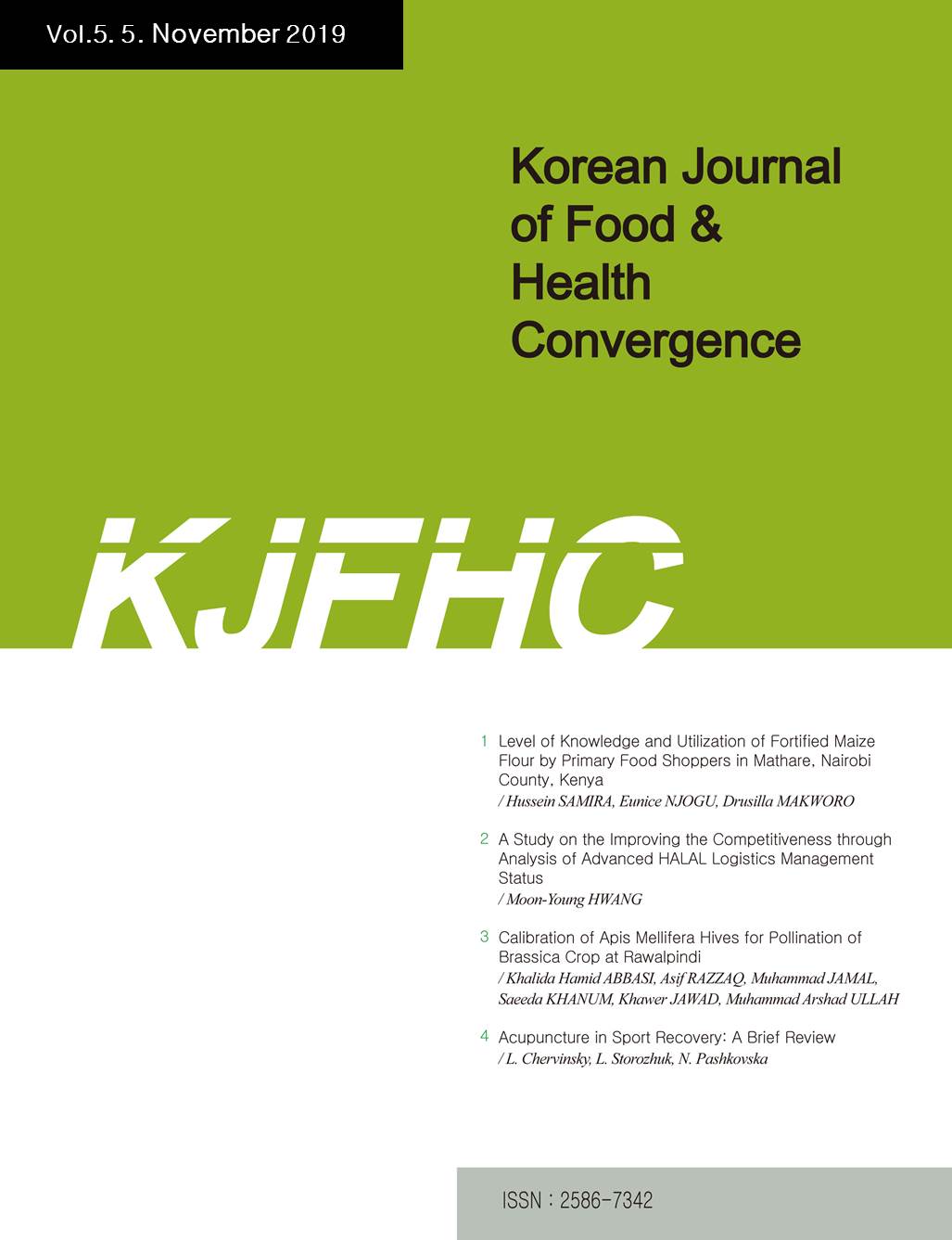- 권한신청
- E-ISSN2586-7342
- KCI
5권 3호
초록
Abstract
The field experiment was conducted in vegetable area, Institute of Horticultural Sciences in University of Agriculture, Faisalabad in order to recognize morphological and fruit growth pattern and yield of Tinda (Praecitrullus fistulosus) gourd germplasm lines. Sixteen germplasm lines in which one line is used as check are included were sown and grown on flat beds in field. The field experiment was arranged as randomized complete block design (RCBD) with three replications. Data on days to maturity, fruit per vine, fruit weight in grams, fruit diameter and total yield obtained were recorded. The fruit texture is marked as phenotype parameter. All parameters were collected and then analyzed statistically. All lines and replications showed different results among each other according to parameter. The maximum DTM (days to maturity), F/P (fruit per plant), FW (fruit weight), FD (fruit diameter) and Yield were recorded was <TEX>$L_0$</TEX> (68.66), <TEX>$L_3$</TEX> (1.66), <TEX>$L_{10}$</TEX> (248.33), <TEX>$L_{13}$</TEX> (8.50) and <TEX>$L_0$</TEX> (599.33) and the minimum were recorded was <TEX>$L_1$</TEX> (56), <TEX>$L_{11}$</TEX> (0.33), <TEX>$L_0$</TEX> (198), <TEX>$L_9$</TEX> (7) and <TEX>$L_4$</TEX> (421) grams respectively. All lines showed smooth texture of fruits with no hairs when mature at harvesting stage.
초록
Abstract
The use of caffeine as a psychoactive stimulant in tea has been observed to have serious negative effects in humans' systems such as respiratory, nervous, cardiovascular, renal and skeletal systems. This study was carried out to assess the levels of caffeine in 10 different tea brands available in local market in Dutse, Jigawa State, Nigeria. Quantitative analysis of caffeine was performed by a simple and fast UV-Vis spectrophotometric methods using different solvents for extraction. The caffeine content in all the tea samples analyzed in this study were below the maximum allowable limits set by the USFDA. Tea have been associated with adverse health effects and the claims made by manufacturers about the benefits of tea do not highlight risks associated with excessive consumption of a combination of the ingredients contained in tea. Long term effects of tea consumption of children and young people have not been adequately studied. Therefore, it is recommended that further research be carried out on the adverse effects of energy drinks on children. Research is also needed to be done on the effects of the combination of ingredients on health and excessive consumption of those ingredients to children and adolescents. People need to be educated and given proper awareness on the health risks associated with caffeine containing beverages.
초록
Abstract
The incidence of both obesity and Type 2 Diabetes Mellitus( DM) is increasing proportionately so that causes of deaths from these has overtaken from that of malnourishment. Hence it has been recommended to treat the 2 in parallel considering the role of diabesity on health. Important causes of T2DM are insulin resistance (IR) and /or inadequate insulin secretion. Protein tyrosine phosphatase 1B(PTPIB) has a negative impact in insulin signaling pathways and hence plays crucial role inT2DM,since its overexpression might induce IR. Thus PTPIB is considered a therapeutic target for both obesity and T2DM, there has been a search for novel ,promising natural inhibitors. We conducted a pubmed search for articles related to PTPIB inhibitors from natural causes be it marine sources or other natural sources. Out of 988 articles we selected 100 articles for review. Thus various bioactive molecules isolated from marine organisms that can acts as PTPIB Inhibitors and thus possess antidiabetic activity both in vitro/ in vivo studies ,besides products from fruits like Chinese raspberry or curcumin used as routine spices are described with their chemical classes, structure-activity relationships and potency as assessed by IC 50 values are discussed. More work is required to make this a reality.
초록
Abstract
In this study, general bacterial counts and coliform counts, which are hygienic indicator microorganisms, were tested for candy, chocolate, and jelly which are easily available and enjoyed around. After dropping each sample on the desk, indoors, and outdoors, it is immediately collected, or washed and collected to confirm the myth of the 3-second rule. Immediately after removing the wrapping paper, each sample was dropped on the desk, indoors, and outdoors, and after 3 seconds from the moment of contact with the surface, and then collected in a sample bag using sterilized sanitary gloves. After the same operation, each sample was rinsed for 5 seconds using sterilized sanitary gloves and sterilized distilled water, and then collected in a sample bag. The number of bacteria detected in non-washing candies was 41 CFU/g at outdoor and the number of bacteria detected in non-washing chocolate was 76 CFU/g at outdoor. The number of bacteria detected in non-washing jellies was 79 CFU/g at outdoor. Coliform group was not detected in all samples. This showed good results at the level of m = 10,000 or less, which is an allowable value suggested in the Food Code. Also, effect of washing on contaminated food was confirmed. This result is remarkably low compared with the microorganism specimens shown in Food Code, and it is confirmed that contamination occurs but not high value. Therefore, the myth of the 3-second rule is true compared to the figures based on Food Code. However, it showed the characteristics of bacteria that could survive and cross-contaminate on dry food surfaces and emphasized the importance of hygiene through food contact to unsanitary surfaces to minimize the risk of food poisoning.

